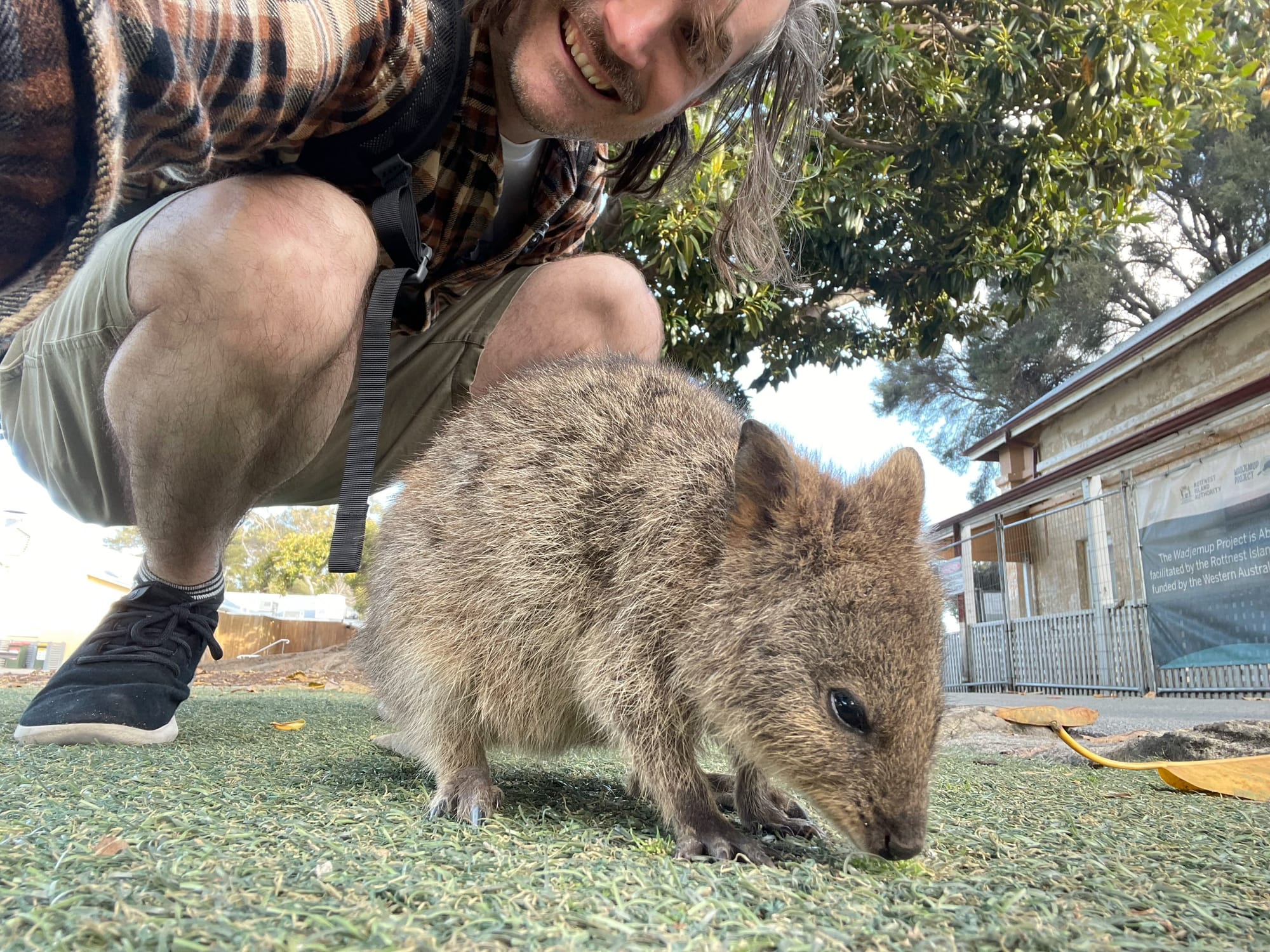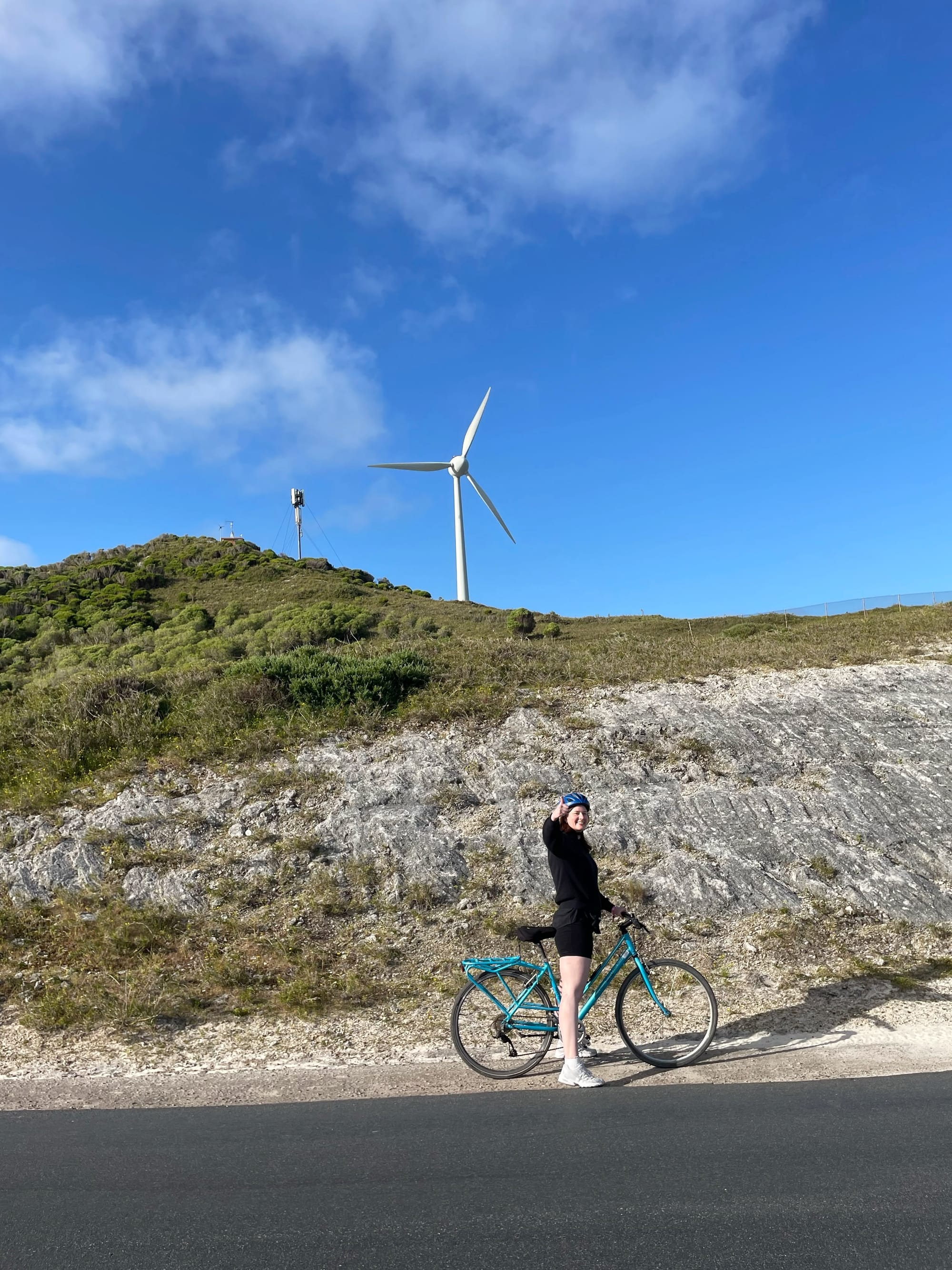SGA Academic Meetup #2 + a quick Standard update + Renewable Rottnest Island

Hello folks! Welcome back from the slightly protracted silence, and I hope you'll forgive me for the outside-of-regular-schedule update today, but I wanted to share the following invitation to our latest meetup happening this week. The details are below, and you can register for the Zoom here.
Date, Time, Location
Thursday, 30th of October 2pm - 3pm CEST, online on zoom: https://zoom.us/meeting/register/p-t9FADRQISeOa1NZBvRdw
The session will be recorded.
Description
This meetup aims to bring together representatives from universities and institutes who are committed to advancing a more sustainable games industry. It will serve as a platform to share best practices, current knowledge, innovative ideas, and upcoming projects. The goal is to foster global collaboration and promote more effective and cost-efficient implementation of sustainable practices within the games industry. Understand how universities and institutes can support game developers of the future by embedding sustainable practices and ecological thinking in training programmes and education, equipping future industry with the skills they need.
Agenda
- Introduction Round: Every attendee will get 2min - Who and why they are participating or how they are connected to the topic 30Min
- 2 Case Studies 30 Min
- Open Q&A 30Min
Case Studies
- 15 min - Rethinking Education: Emma Westerlund, Novia University of Applied Sciences Education is important – but it's not enough.
There are still some major gaps within education. One is the discrepancy between what we know about sustainability issues and how we still continue to educate for linear systems. Another is the tension that often exists between academia and the industry. To truly educate for a sustainable future, both of these stumbling blocks need to be given high priority within higher education.
- 15 min - University of Tuebingen, Ethics Center, Theresa Krampe:
How can we discuss sustainability in games from an ethical perspective? What are related values and how can we put them into practice? How can we open, strengthen, and maintain productive lines of communications between researchers, industry stakeholders, and political decision-makers? These are some of the questions we seek to explore at the International Center for Ethics in the Sciences and Humanities; an interdisciplinary research institute dedicated to the analysis of societal, cultural and technological transformations, nature and sustainable development. We’d like to use this meeting to introduce the emerging games-related initiatives at the Ethics Center, including a transdisciplinary conference scheduled for autumn 2026.
S0, the really big news is that we launched the SGA Standard! Maybe you saw some of the many articles about it and what we're trying to achieve? It seemed to go well and to have been well received. In any case – it's live! And you can see all the components we worked on over the past year and a half on the website.
I haven't had a chance yet to write up some of what I want to share with GTG readers about the standard itself. There's so much I want to tell you – from the decisions we made about what to put into V1.0, what new potential the standard can unlock in the near future, and more.
Please peruse the different components when you can and tell me what you think of it – what's working and what isn't. What makes you go "yes, finally!" and what still leaves you scratching your head or going "I wish it did xyz..." V1.0 is just the beginning; it's only going to get better from here, and you can help.
Instead of a longer discussion, here are a couple of short explainers/demos of how to use some of the new data input sheets:
Digital Downloads
First, we have Scope 3.9 Downstream Transport and Distribution – which is all about digital downloads. This is an area of the games industry's impact that is getting a bit of short shrift at the moment. There are understandable reasons for that. Digital downloads are considered "less impactful" than physical discs transported around the world (true), and they're often harder to track because calculations require data sharing by ecosystem partners (Steam, Microsoft, Sony, Nintendo, GOG.com, etc, for their respective digital stores). But less impactful does not mean no impact, and the scale of digital game distribution means we can't ignore it, and there is still some data we can draw on from our distribution partners.
So here's how to use our S3.9 data input sheet tool to understand the impact of game downloads. I want to come back and write more about it soon!
IT Hardware Purchases
Next, here's the S3.1/2 component for calculating IT Hardware emissions. Two situations in which you might want to use it:
1) If you have annual reporting coming up, and want to quickly measure the (estimated) impact of purchasing laptops, desktops, iPhones, tablets, servers, monitors and other IT equipment for either mandatory or voluntary disclosures. Option 3 is a super quick and easy spend-based method to measure those emissions by aggregating your total spending (in almost any currency!) and automatically convert that into a CO2e total, using historical exchange rates, and applying inflation adjustments automatically. How neat is that!!!
2) If you have IT purchases from suppliers who publish product carbon footprint (PCF) reports and want to get more accurate than estimates. In that case, the Option 1 method lets you input the numbers from your Apple, Dell, etc. supplier published PCF reports (usually found on their website – in future I want us to have a database that's sucked those numbers in already to save users even more time, but that's a future goal). Sometimes PCFs have emissions lower than spend-based estimates, in which case, hooray, you've got a reduced footprint! Other times, they're higher than averages, in which case, bummer! – but at least you're not underestimating, and have more accurate numbers. It also means you have more information about your choice of suppliers – maybe next procurement cycle you can buy different laptops or phones with a lower impact? For big firms who buy lots of IT devices, they might even decide to reach out to suppliers and engage with them about their plans for long term sustainable production. It's all about enabling sustainable action, even if it is limited for now. Watch the demo on the SGA YouTube below:
So that's just a couple of the new tools and Standard methods for calculating different parts of a game business' climate impact. We'll be rolling out more videos and demos in the coming weeks, and I am very much looking for real world feedback and experiences from users – please give them a look!
Renewable Rottnest Island
Right after our launch, I went on a much, much needed holiday. Here's me posing with one of the many delightfully unbothered quokka's that can be found on Rottnest Island, off the Western Australian coast.

And here's a pic of my gorgeous girlfriend posing in front of the famous Rottnest Island wind turbine. Glorious!

The whole island is powered by about 75% renewable energy, a mix of power from the single (now somewhat ageing) wind turbine and a large solar farm with battery storage – with the rest provided by a fleet of diesel generators (boo). When there's excess solar and wind, it powers a desalination plant that produces almost all the fresh water on the island.
It's pretty impressive how seamlessly it all works! The island hosts thousands of tourists every day, and a smaller number of semi-permanent residents who work in the shops on the island. Just about everyone gets around by bike – tourists and locals alike - which is great and makes for an extremely walkable and pedestrian friendly experience. (Pro tip, though: I'd recommend taking your own, or hiring a good one from the mainland rather than the pretty clapped-out clankers available for hire on the island).
Thanks for reading GTG, and more soon!